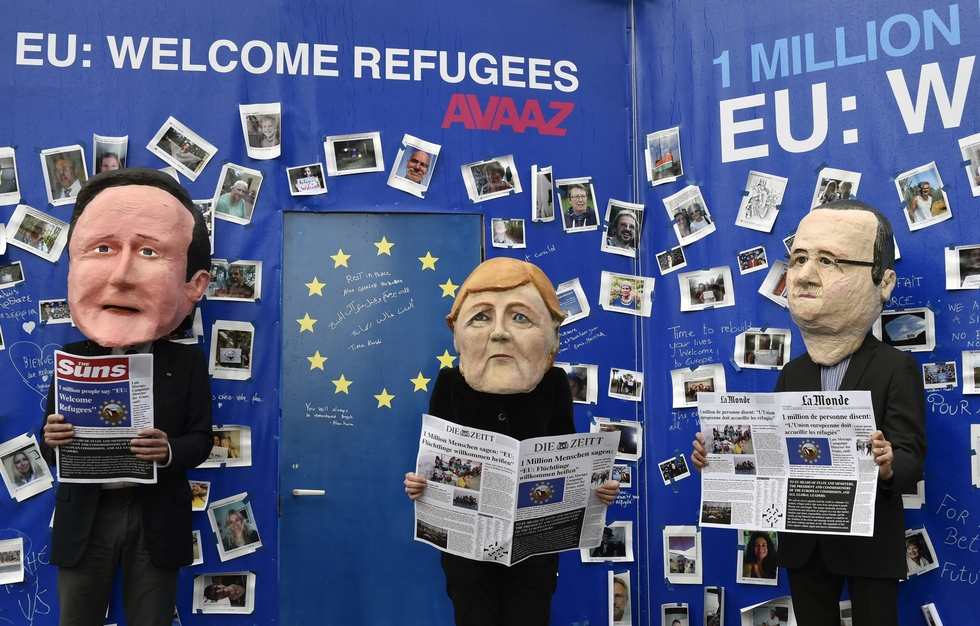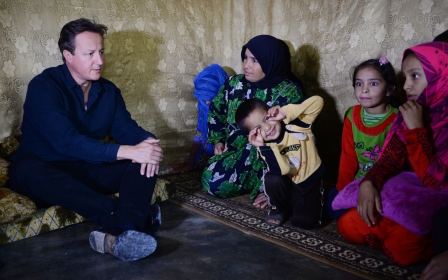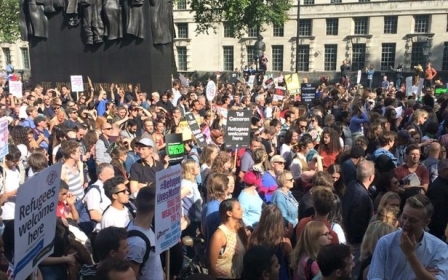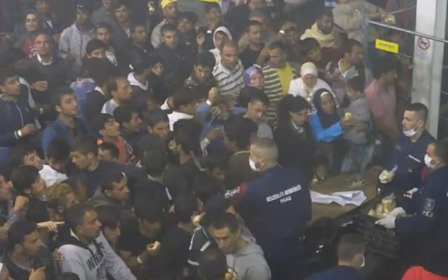Cracks show in refugee plan as EU ministers meet in Brussels

Cracks were beginning to show in the European Union's plan for coping with the influx of refugees, even before ministers sat down for an emergency meeting in Brussels on Monday.
As the UK’s home secretary Teresa May arrived at the meeting, she announced that she would be maintaining Britain’s resistance to the idea of a "refugee quota" for EU countries, saying that the government’s plan to resettle people straight from refugee camps in the Middle East would ensure the most vulnerable people were helped first.
“It is also to make sure we are dissuading others from making this dangerous journey and to break the business model of these cruel criminal gangs," she said.
“By doing this we are offering protection to those who need it and can return the economic migrants who do not.”
Britain has said it will resettle 20,000 refugees over the next five years, taking people directly from camps rather than from the hundreds of thousands making the dangerous journey across the seas to reach Europe.
Poland’s Prime Minister, Ewa Kopacz, also voiced her opposition to the idea of a binding quota and said Poland would restore border controls if it perceived any external threats to its security.
Germany, Austria and France support the idea of quotas – proposed by European commission chief, Jean-Claude Juncker – which would share 160,000 refugees between 28 countries.
The EU members will reportedly vote on the plan during the course of the meeting.
The crisis meeting in Brussels follows Germany's re-establishment of controls along its border with Austria – effectively ending two decades of free travel in the Schengen Area.
Closing borders
The restrictions come after Berlin’s announcement last week that it was waiving the need for registering asylum seekers. But the resulting surge of mainly Syrian refugees proved too much for Germany to maintain, prompting the European power to reverse its earlier stance and once again take action without consulting its neighbours.
Closing the borders will create a backlog of refugees in Austria and Hungary – the latter has come under intense criticism for its hardline anti-immigration stance, and its treatment of refugees.
UNHCR has accused Hungary of transporting hundreds of refugees to the Austrian border from the Serbian one without permission.
Prime Minister Viktor Orban has said the country will continue with a border crackdown – arresting anyone found trying to cross into the country from Serbia undetected.
UNHCR described Monday’s meeting of foreign ministers as “critical”.
“UNHCR is concerned that the combination of different, individual measures might create a situation where large numbers of refugees seeking in Europe the protection they are entitled to receive in line with international law will find themselves moving around in legal limbo,” it said in a statement.
“In this context, the decisions of [the] European Council of Ministers of the Interior are even more critical.”
Slovakia's interior ministry followed Germany’s lead and announced it had renewed checks on its borders with Hungary and Austria. It said that more than 200 extra officers had been deployed at border crossings.
Austria has also said it would introduce checks on its border with Hungary but Austrian police spokesperson Gerald Pangl said no order had yet been received to pursue border checks in the area, the Associated Press news agency reported.
New MEE newsletter: Jerusalem Dispatch
Sign up to get the latest insights and analysis on Israel-Palestine, alongside Turkey Unpacked and other MEE newsletters
Middle East Eye delivers independent and unrivalled coverage and analysis of the Middle East, North Africa and beyond. To learn more about republishing this content and the associated fees, please fill out this form. More about MEE can be found here.




